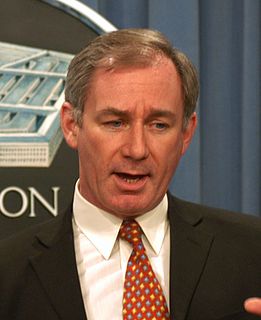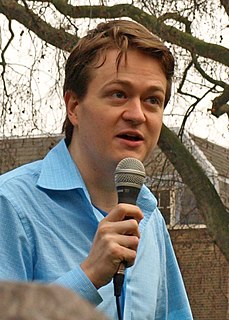A Quote by Arundhati Roy
If protesting against having a nuclear bomb implanted in my brain is anti-Hindu and anti-national, then I secede. I hereby declare myself an independent, mobile republic. I am a citizen of the earth. I own no territory. I have no flag. My policies are simple. I'm willing to sign any nuclear non-proliferation treaty or nuclear test ban treaty that's going. Immigrants are welcome. You can help me design our flag.
Quote Topics
Against
Am
Anti
Any
Ban
Bomb
Brain
Citizen
Declare
Design
Earth
Flag
Going
Having
Help
Help Me
Hindu
Immigrants
Independent
Me
Mobile
Myself
National
Non-Proliferation
Nuclear
Nuclear Bomb
Our
Own
Policies
Proliferation
Proliferation Treaty
Protesting
Republic
Sign
Simple
Territory
Test
Then
Treaty
Welcome
Willing
Related Quotes
We have a crisis in nuclear weapons, and again, thanks very much to the Democrats: Bill Clinton, who removed us from the Anti-Ballistic Missile Treaty framework for nuclear disarmament, and then Barack Obama, who created a trillion-dollar budget for us to spend on a new generation of nuclear weapons and modes of delivery.
The court was unable to rule on all circumstances in which nuclear weapons might be used, and it said in view of the problems, the risks posed by nuclear weapons, and in view of the lack of certainty of the law in all circumstances, the best course is fulfilling the obligation of good faith negotiations of nuclear disarmament contained in the nuclear non-proliferation treaty.
For the United States to recommit itself to the obligation that we undertook in the Nuclear Non-Proliferation Treaty that many other states undertook, which was to work towards disarmament and the eventual elimination of nuclear weapons, is something that manifestly serves our national security interests.
We have been led to believe that we have come a long way toward world nuclear disarmament. But that is not the case. Our government is not doing all that it could. We must urge our leaders to fulfill the obligations of the Nuclear Non-Proliferation Treaty. The United States must assume world leadership to end once and for all the threat of nuclear war. It is our moral responsibility.
It is the foremost responsibility of the United States, having been the predominant nuclear power, to take the lead in scaling this back and making good on its signed and sealed and ratified obligation in Article 6 of the non-proliferation treaty going back to '68 to eliminate this nuclear arsenal. That's a serious international obligation.
One of the most serious [challenges] is increased military spending and the cost of maintaining and developing nuclear arsenals. Enormous resources are being consumed for these purposes, when they could be spent on the development of peoples, especially those who are poorest. For this reason I firmly hope that, during the Nuclear Non-Proliferation Treaty Review Conference to be held this May in New York, concrete decisions will be made towards progressive disarmament, with a view to freeing our planet from nuclear arms
I would like to clarify that our opposition to the Nuclear Non-Proliferation Treaty is not related to any consideration involving Pakistan. Our position on this important issue is consistent and principled. We are not ready to sign the NPT as it stands today because it is blatantly discriminatory in character.



































